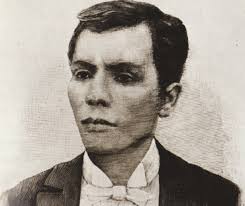- INTRODUCTION
Muzon Elementary School celebrates the “Andres Bonifacio Day” last December 01, 2016 at Muzon, Malabon City.

Andrés Bonifacio y de Castro (November 30, 1863 – May 10, 1897) was a Filipino revolutionary leader and the president of the Tagalog Republic. He is often called “The Great Plebeian” and “The Father of the Philippine Revolution”. He was one of the founders and later Supremo (Supreme Leader) of the Kataas-taasan, Kagalanggalangang Katipunan ng mga Anak ng Bayanor simply and more popularly called Katipunan, a movement which sought the independence of the Philippines from Spanish colonial rule and started the Philippine Revolution.[2][3] He is considered a de facto national hero of the Philippines,[4] and is also considered by some Filipino historians to be the first President of the Philippines (through the revolutionary government he established), but officially he is not recognized as such. Andrés Bonifacio was born in Tondo, Manila, the son of Charles Gatbunton Y Bonifacio, a native of Taguig, and Catalina de Castro, a native of Iba, Zambales. He was the eldest of six children. His siblings were Ciriaco, Procopio, Troadio, Esperidiona and Maxima. His father was a tailor who served in the colonial government as a teniente mayor of Tondo, Manila, while his mother was a supervisor at a cigarette factory in Manila and was a mestiza born of a Spanish father and a Filipino-Chinese mother. As was custom during that time, upon baptism he was named after the saint on whose feast day he was born, Andrew the Apostle. In 1892 Bonifacio was one of the founding members of José Rizal’s La Liga Filipina, an organization which called for political reforms in Spain’s colonial government of the Philippines. However, La Liga disbanded after only one meeting as Rizal was arrested and deported to Dapitan in Mindanao. Bonifacio, Apolinario Mabini and others revived La Liga in Rizal’s absence and Bonifacio was active at organizing local chapters in Manila. He would become the chief propagandist of the revived Liga.
La Liga Filipina contributed moral and financial support to the Propaganda Movement of Filipino reformists in Spain.
Andrés Bonifacio was also a member of Freemasonry with the lodge Taliba headed by Jose Dizon; and his pseudonym was Sinukuan, possibly taken from a Philippine mythological character Maria Sinukuan
.II. PRESENTATION
So, we in Muzon Elementary School make sure that our students knew who Andres Bonifacio is and the things he made, to be one of our National Hero through a video presentation. As they watched the video, they showed an interest and they were eager to know him more. A question asked after the presentation to check their understanding on how his life become fruitful and productive.


Lastly, they’ve learned that strength and being brave is not enough to achieve what you want but the dedication and commitment between you and your country is the best armor that you had, as Andres Bonifaciio is that he is willing to give his life for us to be free from the hands of the Spaniards. He is really a true hero for his words and deeds and that is one of our Filipino prides.
